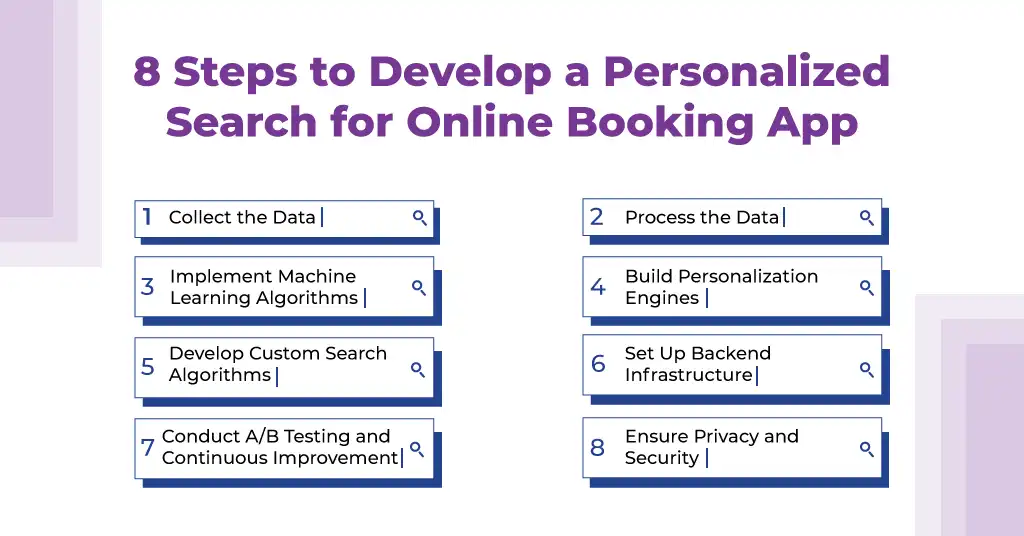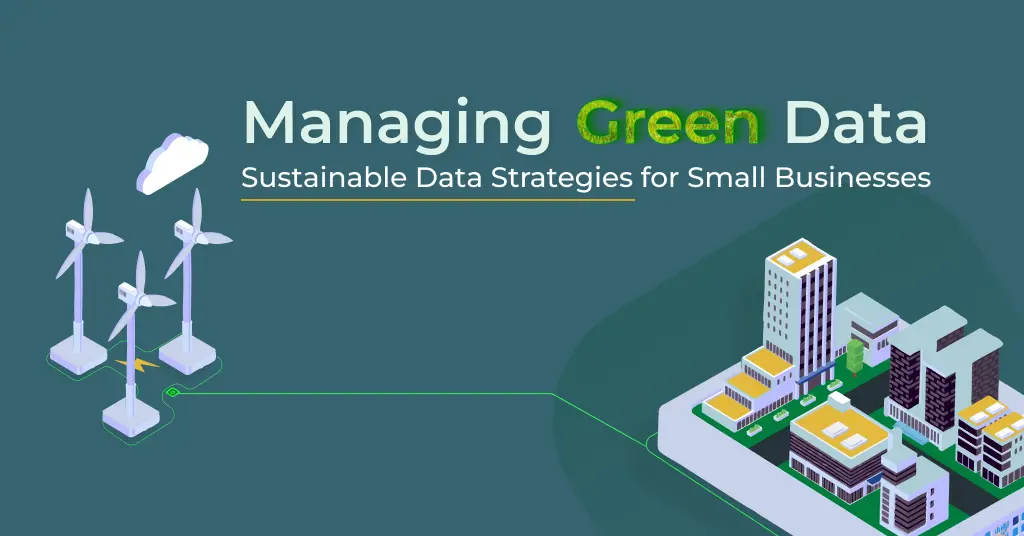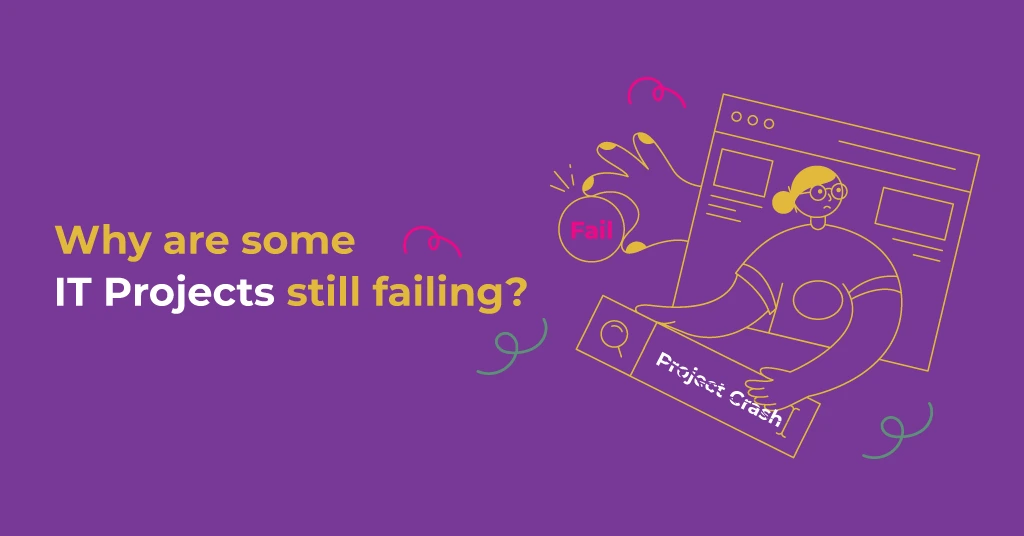How many online booking applications do you refer to before you book a hotel, flight or event?
Two? Three? Four?
Or as many as available?
The more discounts, the more likely you are to book!
Right?
No matter which platform offers it to you, the lowest price matters the most.
But little do you know that it’s not just the discounts that matter but the personalized recommendations that make the booking process quick and easy!
The pinch of salt in the name of personalization can change the entire game for your booking service completely!
If you don’t believe this, take a look at the data below –
Personalization in recent years has become such an important factor that it can influence the relationship of a user with a service like never before!
But why?
How can personalized recommendations influence a person to take such actions?
Let’s analyze that –
Have you ever noticed that your travel app or hotel booking app shows different recommendations than the person sitting next to you?
Because the app knows your preferences and likes, it provides updates tailored to you, keeping you engaged!
And that’s the mission of every booking service—to attract more visitors and keep them engaged!
For D2C or B2C businesses like booking services and applications used for it, it’s crucial to increase user engagement to drive conversions and achieve the expected ROI!
But achieving this requires some technical capability…
For instance, your website or app should have the following things,
Personalized recommendations or content based on user interaction and history
Offering quick click points based on user’s past UI preferences
Highlighting announcements like discounts and other offers on the top
And much more!
Many booking apps implement such features or personalized search algorithms that help users find what they’re looking for quickly and easily. This benefits both users and the business.
How?
Keep reading…
How personalized search results help booking services increase users’ dwell time?
1) Personalized Content enhances relevance and ensures users see what interests them, increasing engagement and satisfaction.
Example – showing family-friendly hotels to users who have booked family trips before.
2) Targeted promotions boost conversion rates by aligning offers and recommendations with user preferences.
Example – A user frequently booking flights to a particular destination can get personalized discounts for that route and is more likely to hit the book button.
3)Tailored experiences foster loyalty which encourages users to return and use the app more frequently.
Example – Users who consistently get relevant suggestions every time they are looking for a particular thing are more likely to return because of the ease of booking in less time.
4) Users are more likely to make purchases when they receive suggestions that match their interests and needs.
Example – A travel app that constantly suggests beachfront resorts to a user who frequently searches for beach destinations, increasing the likelihood of booking.
5) Personalization creates a smoother, more enjoyable user journey which reduces frustration and increases usage.
Example – A car rental app remembers a user’s preferred vehicle type and location choices. When they open the app, it immediately displays available options matching their past preferences, making the booking process quicker and more enjoyable.
Don’t you think you would like to book a ticket too if given these choices?
But it is not something that only influences the choice – this technique can reap benefits for the business.
How Personalized Recommendation help improve Sales for an Online Booking System?
Marketers are always looking for ways to convert whatever is there on the applications into returns and to do that they implement many tricks planned in the application only.
For example –
- Effective Marketing – Personalized messaging and notifications improve campaign effectiveness by targeting specific user segments with relevant offers.
- Data-Driven Strategies – User behaviour data refines strategies for better ROI. For instance, analyzing peak booking times and using push notifications accordingly can increase the chances of booking.
- Longer Engagement – Personalized content keeps users engaged longer, leading to more opportunities for monetization through upselling and cross-selling.
- Deeper Insights – Personalized interactions provide a better understanding of customer needs and preferences, helping tailor services and offerings.
- Higher Conversion Rates – Targeted promotions and recommendations result in more bookings, boosting revenue. For example, offering last-minute deals to frequent travellers.
Now,
This isn’t something we’ve written to impress you—many businesses indeed have achieved better results with this!
Otherwise, we wouldn’t dedicate an entire blog to it!
The magic of personalization is the result of some of the greatest marketing minds on the planet.
But to make it happen, one needs real technical support and a trustworthy development team.
You can explore our software development services!
And please don’t be too quick to judge—it requires a significant investment given the technical complexity involved in its development!
But, when almost every application has these features, both technically and financially,
Then it is possible…
For you too!
Let’s discover how technical wizards can make personalization happen for you and your booking application!
How to Develop a Personalized Search Feature for a Booking Application? (Developers Guide)
Here’s a step-by-step guide on how developers technically enable personalized search for booking services applications

Step 1
➡️ Collect the Data
- Developers collect various types of user data, including behaviour, preferences, booking history, and browsing patterns.
- They also gather demographic information such as age, gender, and location, along with user feedback, ratings, and reviews to better understand preferences.
Step 2
➡️ Process the Data
- To handle and process the collected data efficiently, developers use big data technologies like Hadoop and Spark.
- They employ ETL (Extract, Transform, Load) processes to prepare the data for analysis, ensuring it is ready for the next steps.
Step 3
➡️ Implement Machine Learning Algorithms
- Developers implement recommendation systems using machine learning algorithms.
- Collaborative filtering analyzes user behaviour to recommend items based on what similar users have liked.
- Content-based filtering suggests items similar to those the user has interacted with.
- Hybrid methods combine both approaches for more accurate recommendations.
- Additionally, Natural Language Processing (NLP) is used to understand and process search queries to match user intent accurately.
Step 4
➡️ Build Personalization Engines
- To update recommendations in real time based on current user interactions, developers create real-time personalization engines.
- They build dynamic user profiles that continuously learn and adapt based on new data, ensuring the system evolves with user behavior.
Step 5
➡️ Develop Custom Search Algorithms
- Custom ranking algorithms are developed to prioritize search results based on user preferences and past behavior.
- Contextual search is implemented to consider the context of the search query, such as time of day, location, and device, making the search results more relevant.
Step 6
➡️ Set Up Backend Infrastructure
- Developers use scalable databases like NoSQL (e.g., MongoDB, Cassandra) to store and manage user data and search indices.
- They employ a microservices architecture, allowing different components of the search system to be developed, deployed, and scaled independently.
Step 7
➡️ Conduct A/B Testing and Continuous Improvement
- Developers continuously run A/B tests to compare different personalization strategies and algorithms, ensuring the most effective ones are used.
- They incorporate user feedback into the system to refine and improve personalization algorithms over time, leading to a more effective and personalized user experience.
Step 8
➡️ Ensure Privacy and Security
- To protect user privacy, developers ensure that user data is anonymized and handled securely. T
- They adhere to data protection regulations like GDPR and CCPA, ensuring that user data is used ethically and legally, maintaining trust and compliance.
And that’s it!
This is how developers enable the magic of personalized information and features that make people scroll and click on the information and items they are interested in!
As We Come to an End
You know how these small features play a crucial role in making an application a staple in life—just how you choose a particular application over others!
They make you feel special and encourage you to keep scrolling to see if you find something you might like—and in most cases, if you don’t have self-control, you will make that booking!
If you want users to do the same, then you need the power of personalization embedded in your online booking applications as well!
These features are the easiest way to attract users and impress them!
They also simplify and enhance the entire user journey by providing them with exactly what they’re looking for!
This tactic is driving real conversions and channeling cash flow back to businesses!
For real…
We bet you’re making some people rich too!
So, whether you have an online booking application or are considering having one developed for your business—the technical elements of personalization can be integrated into your website!
Either way, it’s possible for you to include these features in your application!
And if you’re aiming to reach a wider audience, consider seeking help from an IT team and inquire about how they can develop the same for you!
Who knows, the personalized approach could lead to a jackpot!
That’s it!
Want to improve your current booking application? Here's how Covrize can help!
Based on your unique audience, we can develop some custom features that will differentiate your application and allow visitors to get what they are looking for!
Personalized search is one option – but not the only one.
As a Bespoke Software Development Company – we do have some suggestions for you.
Connect with us to share your concerns – and let our experts get back to you with a detailed explanation!







